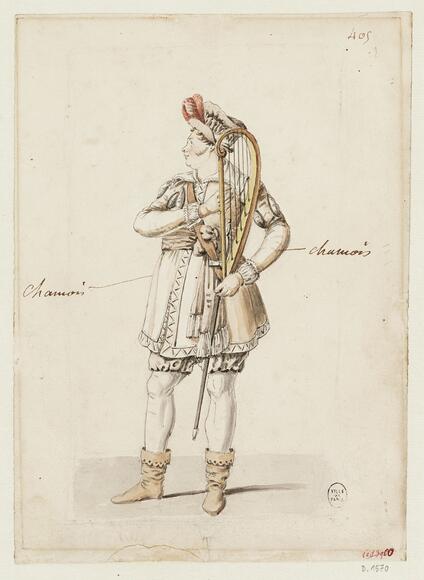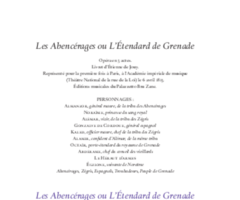Les Abencérages ou L’Étendard de Grenade

Opera in three acts, first performed at the Académie Impériale de Musique on 6 April 1813.
Les Abencérages marks the composer’s return to opera after ten years of silence. Cherubini joined forces with the librettist Étienne de Jouy, who was inspired by Jean-Pierre Claris de Florian’s novel Gonzalve de Cordoue. The marriage of Almansor and Noraïme, both from the Abencérages tribe, is threatened by the enemy Zégris tribe, whose chief is also in love with Noraïme. The Zégris imagine a stratagem to have Almansor deposed. Unjustly accused, he is restored to his honour thanks to the intervention of Gonzalve de Cordoue (Gonzalvo de Córdoba). The work enjoyed a certain success (nearly twenty performances – after a brilliant premiere conducted by Louis Luc Loiseau de Persuis, at which the imperial couple appeared), but sank into oblivion after the fall of the Empire. Nevertheless, Les Abencérages is a jewel of French romantic grand opéra, as it was then emerging with the works of Catel, Le Sueur and Spontini. In many ways, the opera prefigures some of the genre’s greatest works: by the importance of development in the part-writing (perhaps under the influence of the recent discovery of Beethoven’s symphonies in Paris); by the search for timbres for dramaturgical ends, contrasting the orchestra’s woodwinds or brass fanfares with the lyricism of the solo instruments; by the very intricate link between the love story and the great historical narrative (Jouy anchors French grand opéra in a constant reference to history); finally, by the importance of the chorus, whose role, although less decorative, is given a more dramatic function.
Focuses
Focus


